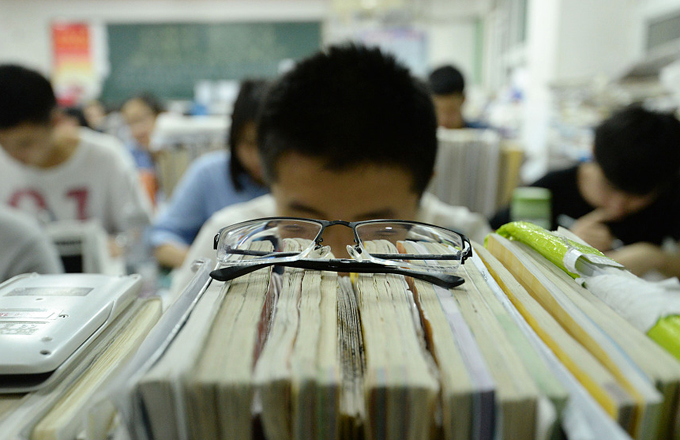No faults found in bridge after alleged testing fraud
"Nothing unusual" was found in an initial check of the Hong Kong-Zhuhai-Macao Bridge, the city's development authority said on Wednesday, the day after Hong Kong's anti-graft watchdog arrested 21 of the quality control contractor's employees on suspicion of submitting fake test reports on concrete used in the massive project.
More detailed information is expected on Thursday at a Hong Kong Civil Engineering and Development Department news briefing.
The case marks the first quality issue to surface since construction of the bridge began in 2009.
Permanent Secretary for Development Hon Chi-keung said the government had never relaxed its commitment to prioritize safety and quality in infrastructure projects. He said the government will thoroughly test the bridge soon.
The quality control contractor was reportedly Jacobs China, a branch of one of the biggest global engineering and construction service providers - Jacobs Engineering Group-local reports said.
The government has not yet said who was contracted for quality control.
Jacobs said on its website that it signed an HK$85.2 million ($11 million) outsourcing contract with the CEDD in 2012 to provide management and operating services for the Public Works Regional Laboratory.
The company cooperates closely with the Hong Kong government. In 2009, it received a Highways Department contract to provide engineering services for design and site investigation in another project.
On Tuesday, the Independent Commission Against Corruption arrested two senior site laboratory technicians, 12 site laboratory technicians and five laboratory assistants from the company. They had conducted compression tests on samples of concrete used for the bridge project.
In the investigation that followed a CEDD corruption complaint, the ICAC found some laboratory employees might have replaced the concrete samples with a metal calibration cylinder and/or high strength concrete cubes for the tests. Two senior site laboratory technicians signed the reports.
Just how the alleged fake reports would affect the bridge's safety could not be ascertained because the ICAC had not revealed which part of the structure was involved, an engineering expert said.
Chairman of the Hong Kong Quality Assurance Agency and engineering sector lawmaker Lo Wai-kwok said fake tests would not reflect the bridge's real situation, such as its bearing capacity.
In the worst-case scenario, use of substandard concrete would force the government to rebuild some parts of the bridge, Lo said.
But it might not be necessary to question the bridge's safety, he added, if the alleged fake test samples were of the paving instead of the pillars of the bridge.
He said further concrete sample tests were needed to assess whether the bridge needed further remedies, such as bracing, but the chances it needed to be rebuilt were slim.
Construction on the 55-kilometer-long Hong Kong-Zhuhai-Macao Bridge project, first proposed in 1983, has been completed, and it is expected to open by the end of this year.
The project includes a 6.7-km underwater tunnel and a 22.9-km bridge that passes over the sea. The bridge would shorten the current four-hour drive from Hong Kong to Zhuhai to half an hour.























